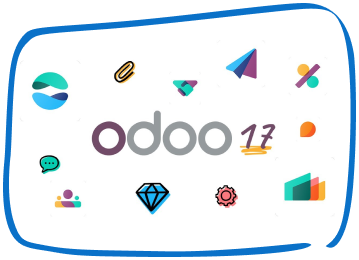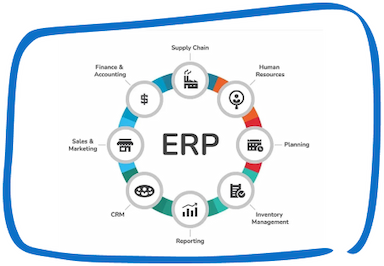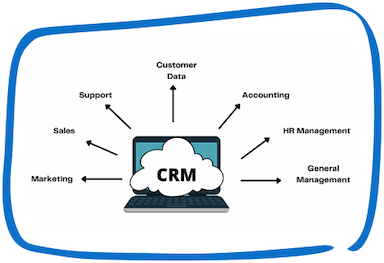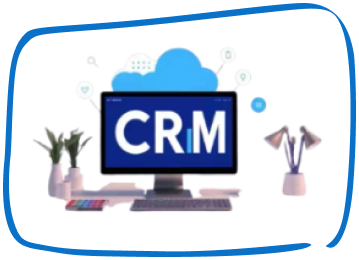Get ready to be an expert at VAT in QATAR
VAT, also known as Value-Added Tax, is a consumption tax levied on the value added at each stage of a product’s production and distribution. In November 2016, the GCC (Gulf Cooperation Council) agreed on a common legal framework to introduce VAT under the GCC VAT Framework Agreement. Other Emirates, such as the United Arab Emirates and Saudi Arabia, have implemented VAT effective 1 January 2018.
Recently, Qatar became the last state to implement VAT in accordance with the GCC VAT Framework Agreement. This Framework requires all members of different states to introduce VAT and establish national legislation within the agreed parameters.
This is a treaty and not a law. Conversely, it provides a clear overview of how the VAT system will be implemented in the region. There will be two VAT rates – the standard rate of 5% and the reduced rate of 0 %). The introduction of VAT in Qatar will have a big impact on business and private individuals, both in Qatar and other countries.
Business and VAT in Qatar: hand in hand
For business, the introduction of VAT represents both challenges and opportunities. Maintaining VAT will most likely require you to make changes to your accounting systems/ERP solutions, finance process etc. Assign a steering committee train them in VAT to conduct an impact assessment. The impact assessment will help you identify how VAT will affect your business, Identify key risks, changes required, recruitment/training needs, and allow you to plan effectively for VAT.
Expert VAT Advisory Services
Navigate the complexities of VAT regulations in Qatar with ease. Our experienced consultants provide personalized advice tailored to your business needs, ensuring compliance and optimized financial planning.
Corporate – other taxes
- Value Added Tax (VAT)
- Custom duties
- Excise taxes
- Property taxes
- Stamp taxes
- Payroll taxes
- Social security contributions.
Output Tax
Suppliers are responsible for collecting VAT on the goods and services they supply to their customers.
Input Tax
Suppliers are subject to VAT on the goods or services they purchase in order to supply to their customers.
Net Tax
Net of Tax is the amount obtained after the applications tax is deducted from the gross income that resulted from investments or transactions. Most commonly used for showing the results of business in terms of income, profits or lose.
Net Tax = Output VAT – Input VAT
Payment of VAT
A value added Tax is a consumption tax assessed on the value added in each production stage of a good or service.
VAT Training for Your Team
Equip your staff with the knowledge to handle VAT processes confidently. We offer comprehensive training tailored to your industry requirements.
VAT recovery
Supplier not bearing the cost of VAT. The input VAT can only be recovered by suppliers if the goods and services they supply are taxable and have completed a tax return.
Types of supplies
- Local supplies
- Intra- GCC supplies
- Standard rated
- Zero rated exempt
- Exempt Supplies
Different VAT treatments are applied to different supplies. It is always good to have a clear understanding of the type of supply as input tax in connection with taxable supplies is fully recoverable. The most important document to have in hand is the accurate tax invoices during the VAT process.
VAT is likely to impact all business in Qatar, either directly or indirectly, if managed effectively it should have a neutral impact.
Key activities that business should remember while preparing VAT Implementation
- Plan the business
Determining how VAT will impact the business model and operations.
- Analyzing the impact on business
Analyzing the prices of services/products the business offers.
- Analyzing existing IT systems
Investigating whether current systems can support VAT
- Analyzing Contracts
Analyzing contractual clauses of existing contracts or new contracts.
- Analyzing the impact on cash flow
Examining the impact on cash flow.
VAT Consultation
Businesses must employ TAX services and VAT consultants in Qatar to comprehend Qatar’s complex tax rules and regulations. A VAT consultant in Qatar assists businesses with Tax risk management, tax identification opportunities, and efficient defective tax return preparation.
Accounting Software
Business already know how accounting on computer software can benefit them. They can maintain their books of accounts with fewer mistakes and faster calculations. There are many accounting software available for companies operating in Qatar. It takes considerable effort for the business owners to decide which one of the accounting software package suits their specific needs. There are number of different product options available for accounting software.
Streamline Your Business with Tally Software
Simplify accounting, inventory, and GST/VAT compliance with Tally Software—the perfect solution for businesses in Qatar. Manage finances efficiently, gain real-time insights, and make smarter decisions with ease.
12 Accounting software used in Qatar
- SAP accounting software
- TallyPrime
- ZOHO
- QuickBooks
- Wave
- Oracle
- Fresh Books
- ERPNext
- SAGE
- SAGE 300 ERP.
- Odoo.
- Elate Accounting software
Optimize Your Operations with Odoo ERP
Transform your business with Odoo ERP, the all-in-one solution for managing finances, inventory, sales, HR, and more. Tailored for Qatar businesses, Odoo simplifies processes, boosts productivity, and supports growth.
Planning For VAT Implementation in Qatar
A good implementation project takes at least 6 months to complete. This means if VAT is to be implemented, you must start to consider the impact of VAT now. Speak to us today to discuss how we can help. Contact us at penieltech.com or ring us at +971 4 239 8571.
FAQs
- What is the name of the main legislation covering VAT or sales TAX?
VAT has not been implemented in Qatar. However. The GCC VAT framework sets out a general, high level VAT rules under which Qatar VAT system will operate once implemented.
- What is the rate of VAT or Sales VAT in this jurisdiction?
VAT is calculated as a percentage of the sales prices of goods and services. Depending on goods and services being sold – either 5 percent (standard rate) or 0 percent (zero rate).
- Who is able to register VAT?
Any individual or legal entity who conducts economic activity to generate income must register for VAT purposes.
- Are there any specific rules governing when a VAT is registered?
Chances of Qatar introducing provisions to relive the application of VAT. The exact criteria for a TOGC being treated as ‘outside the scope of VAT’ tend to differ from one VAT regime to another and so we will need to await further clarity.
Speak with Our Team!
4.9 Stars
1k+ reviews on






